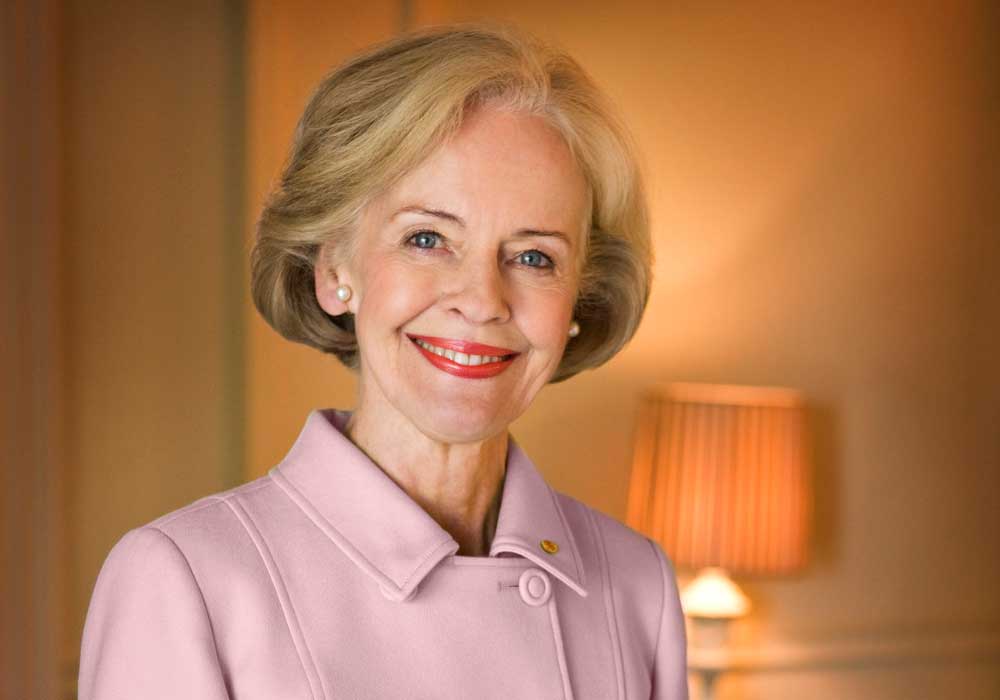quebec-oui.org – Quentin Bryce, a prominent figure in Australian history, served as the 25th Governor-General of Australia from 2008 to 2014. As the first woman to hold this distinguished position, her tenure marked a period of significant cultural and social shifts in Australia.
Early Life and Career
Quentin Alice Louise Bryce was born on December 23, 1942, in Brisbane, Queensland. Before entering the political sphere, Bryce had a distinguished academic and legal career. She earned a law degree from the University of Queensland and initially worked as a solicitor before turning her attention to public service and social advocacy. Her passion for women’s rights and social justice would define much of her future work.
Appointment as Governor-General
In 2008, Bryce made history when she was appointed as Governor-General by then-Prime Minister Kevin Rudd. She succeeded Major General Michael Jeffery and became the first woman to occupy the position, which holds a ceremonial yet influential role as the Queen’s representative in Australia. Her appointment was met with widespread support, as she was regarded as an advocate for the community, particularly women, children, and Indigenous Australians.
Achievements During Her Tenure
As Governor-General, Bryce was known for her calm and approachable demeanor. She carried out her ceremonial duties with grace and often used her position to highlight important social causes. Throughout her term, she focused on issues such as:
- Women’s Rights and Equality: Bryce was a strong advocate for women’s participation in leadership roles and gender equality. She championed initiatives that aimed at breaking down barriers for women in various sectors of society, including politics and business.
- Indigenous Rights and Recognition: Bryce’s tenure coincided with the ongoing conversation around reconciliation and the recognition of Aboriginal and Torres Strait Islander peoples in the Australian Constitution. She supported the need for a more inclusive Australia, acknowledging the historical and contemporary injustices faced by Indigenous communities.
- Social Justice and Community Engagement: As Governor-General, Bryce regularly engaged with various community organizations, particularly those that worked to improve the lives of the disadvantaged, including children, the elderly, and refugees.
Significant Events and Roles
Bryce’s time as Governor-General saw her involved in various national and international events. Notably, she presided over the 2010 Australian Federal Election, swearing in Prime Minister Julia Gillard after a highly contested race that resulted in a minority government. Her role during this period was crucial in maintaining the stability and function of the government.
Another defining moment came in 2012 when Bryce delivered an emotional address at the National Apology Ceremony for Forced Adoptions, acknowledging the suffering of individuals affected by Australia’s forced adoption policies.
Legacy and Impact
Quentin Bryce’s legacy as Governor-General is marked by her pioneering role as the first woman to hold the office, as well as her advocacy for social justice and equality. She was widely praised for her empathetic leadership and her ability to connect with ordinary Australians. Her tenure is remembered for breaking new ground and championing important causes that continue to resonate in Australian society.
Upon leaving office in 2014, Bryce was succeeded by Peter Cosgrove, marking the end of a distinguished chapter in Australian history. Despite stepping down from her official role, Bryce’s influence on Australian life and her contributions to advancing equality and social justice continue to inspire future generations.
Conclusion
Quentin Bryce’s time as Governor-General of Australia (2008–2014) remains a defining period in the country’s history. Her leadership, advocacy for women and Indigenous communities, and commitment to social justice earned her admiration and respect both at home and abroad. As the first female Governor-General, Bryce broke barriers and set a precedent for future generations of women in leadership roles, leaving a lasting imprint on the nation’s political and social landscape.
